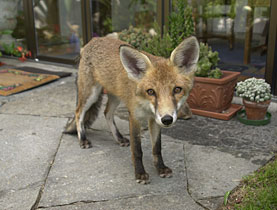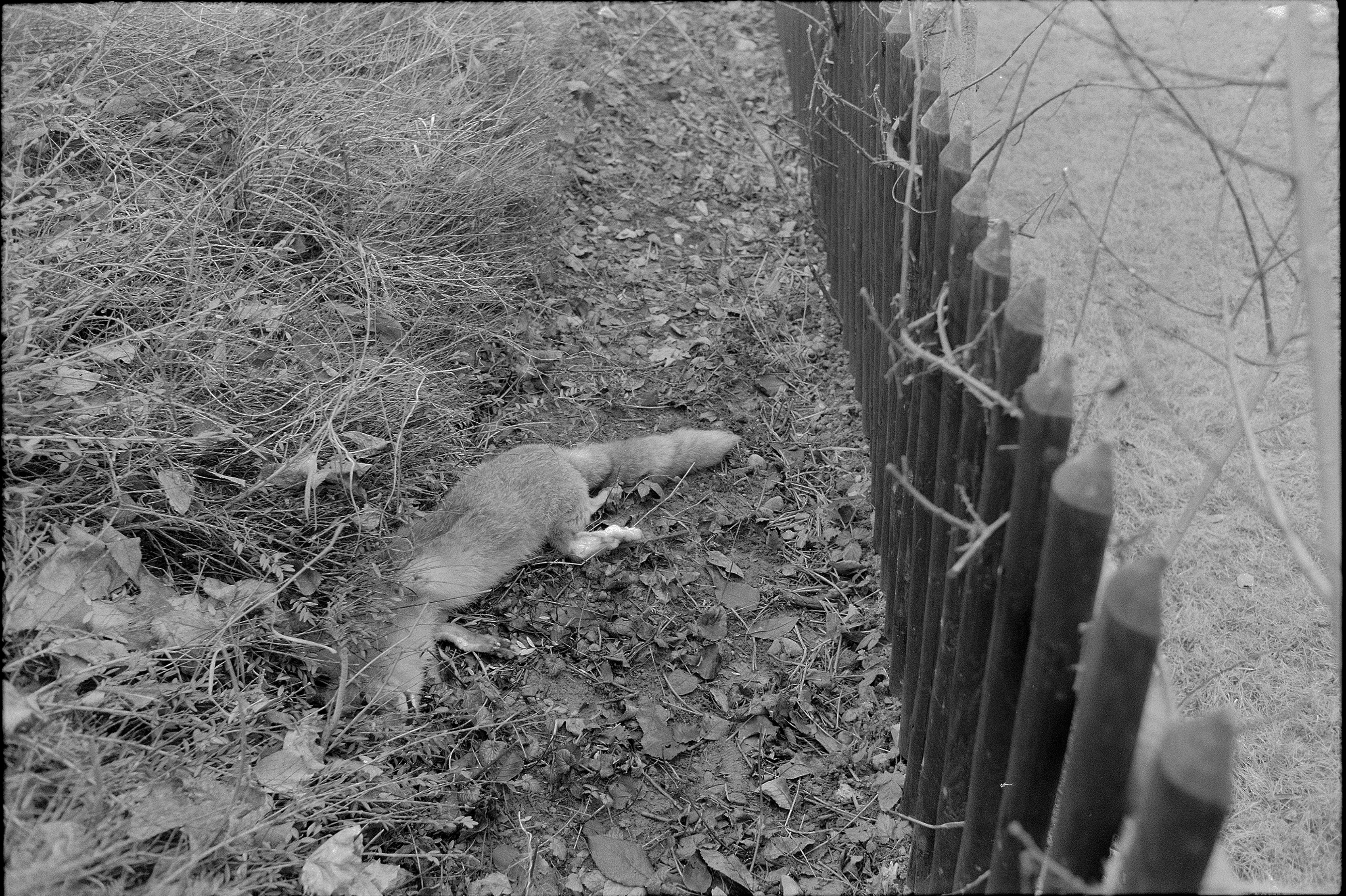Cities develop their wild side

The urban fox population is on the rise in Switzerland – good news for some but problematic for others.
Overall there is much more wildlife in cities than might be expected: stone martins abound, bats are making a comeback and there have even been sightings of lynx.
“We have quite a big fox population in the city of Zurich, around 1,200 foxes. In most other Swiss cities you’ll find big fox populations as well,” Stefan Dräyer, wildlife warden for the Uetliberg area of the city, told swissinfo.ch.
“Many people are at first a bit surprised that there are foxes in the city. We have a lot of green areas in Zurich and these offer a good habitat for lots of wildlife, especially for foxes.”
The animals’ reappearance is largely linked to the fact they are no longer hunted, says Urs Tester, responsible for habitats and species at the wildlife organisation Pro Natura. “They have lost their shyness and can live closer to man,” he said.
There’s also a lot of food in cities. Foxes will eat anything, says Dräyer, “from meat, to fruit and berries. The fox likes everything, according to the season. But its main source of food is mice”.
However, dipping into to rubbish bins – which can cause a mess – is a lot more convenient than hunting mice and birds, added the expert. Foxes are opportunists.
“Some people view the fox very positively, and enjoy observing wildlife in the city,” said Dräyer.
Others are shocked or surprised. “They are not used to the fact that wildlife likes foxes can live in cities and don’t want it either.”
Don’t feed
Many people believe that foxes come into the city because life is hard elsewhere and subsequently feed them.
Dräyer and Tester advise very strongly against this because this makes the animals too tame, which can cause problems.
There have also been concerns that the animals carry dangerous diseases such as rabies and the fox tapeworm. There is no rabies in Switzerland but tapeworm, which causes the life-threatening Alveolar echinococcosis, can be a problem, although it is rare.
Dräyer says that the situation in Zurich is continuously monitored as part of the city’s fox project.
“It’s all about common sense: if you wash your hands after gardening then there is no risk,” he said.
Research has shown that urban fox areas are rarely infected, and tapeworm is more common among those on the city outskirts. The highest infection rate is among foxes in the countryside.
Foxes don’t generally tend to attack people, the expert says.
Public awareness
Working with the population over fox issues is extremely important and Dräyer monitors fox numbers carefully.
Sometimes an animal has to be destroyed. This could include laying a live trap, and it being put down afterwards. Locals will always be consulted beforehand.
In Lausanne, for example, a fox hunter told the Le Temps newspaper he had trapped 70 foxes in a year. Half of them were put down because they had the mange.
However, foxes do play a helpful role in eating up rubbish and dead birds, adds Dräyer, reducing numbers of harmful pathogens.
Even more common than foxes in towns are stone martins, which can sometimes be heard scampering around in attics.
“They also go into cars and can damage them by nibbling on the cables,” Tester told swissinfo.ch.
Making a comeback now are bats, whose numbers dropped previously because of the chemical products formerly used in urban areas.
Surprise visitor
Occasionally towns get a surprise visitor. “We had a lynx who lived for a few weeks in Zurich and the same year I got a phone call from someone who had seen one in Basel,” Tester recalled.
But the lynx would normally only spend a few weeks in a city before returning to a more attractive habitat, he said.
Wildlife is more abundant than might be expected. Zurich – Switzerland’s largest city – has published a book detailing 600 types of flora and fauna in the city.
Tester said that there are actually thousands of plants and animals in cities. “In certain parts of town you have more animals and plants living there than in agricultural landscapes because you have interesting structures and types of vegetation for animals,” he said.
These can, of course, disappear very quickly, so it depends how people use their gardens, he added. Animals and birds should be enjoyed, but again Tester warns that feeding can be a problem.
“Sometimes in towns if people feed the doves they end up feeding the rats even more and this leads to an overpopulation of rats and the town has to find a solution.”
More foxes have been seen in Swiss cities in recent years.
In the event of a mother fox with cubs living in a private garden: the wildlife warden should be informed straightaway. Dens can be blocked off when the foxes are grown.
There was a report of a fox attack in London last year on two babies. But foxes do not generally attack people, experts say. Foxes are by nature shy and avoid people. If they feel threatened however, cubs or tamer foxes might bite.
The tapeworm can cause Alveolar echinococcosis in humans. The adult worms live in the small intestine of foxes, but sometimes also dogs and cats. Eggs are expelled in faeces and can survive for months in damp conditions.
People can become infected through direct contact with infected animals or through raw foodstuffs or water infected with eggs.
In Switzerland infected foxes are more likely to be found in the Swiss Plateau (the regions between the Jura and the Alps) and the Jura. The Alps are less affected. There are up to ten cases of infection in human a year in Switzerland.
Rabies is often a fatal disease caused by a virus, which can be passed onto humans. Foxes and bats are important carriers in Europe and in tropical and subtropical lands it is often dogs.
People can become infected through a bite or scratch from an ill animal or if spit comes into contact with the eyes, mouth or nose. Switzerland is rabies free although last year an outbreak was reported in northern Italy, over the border.
(Source: Federal Health Office)

In compliance with the JTI standards
More: SWI swissinfo.ch certified by the Journalism Trust Initiative












You can find an overview of ongoing debates with our journalists here . Please join us!
If you want to start a conversation about a topic raised in this article or want to report factual errors, email us at english@swissinfo.ch.